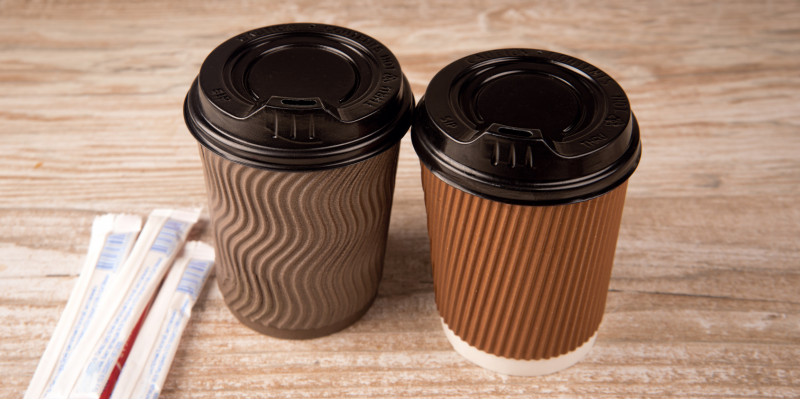The first “to go” cup of coffee in Germany was sold in 1996. In the meantime, 70 per cent of consumers in Germany now use to-go cups, either frequently or occasionally. The latest survey taken by the Institute for Energy and Environmental Research (ifeu) in the framework of a current research project estimates that to-go sales account for a total annual quantity of 2.8 billion disposable cups, of which about 1.2 billion are “to-go” cups. The result is that more and more discarded cups are littering public spaces, streets and nature. Careless littering and overflowing waste baskets are a costly challenge which local communities must tackle.
Disposable cups consume valuable resources such as wood, plastic, water and energy, but they are only used for about 15 minutes. Disposable hot-beverage cups are made from mostly virgin fibre paper and are coated with a thin polyethylene layer on the inside. Recycled paper is not commonly used in food packaging. Furthermore, there is the problem of the plastic lids, which are usually made from polystyrene. Disposable cold-beverage cups are produced mainly from fossil plastics, most typically polypropylene, polystyrene and polyethylene terephthalate.
When vendors such as bakers or drink concession stands at festivals give preference to returnable cups or fill up cups which customers bring, they can now communicate their commitment more visibly to consumers with the Blue Angel. The ecolabel award criteria address requirements of the cups themselves as well as the providers.
Certain harmful materials must also be avoided in the production of the reusable cups and lids. Prohibited substances include melamine resins and polycarbonate plastics which can release Bisphenol A. To prevent increasing the generation of waste the cups must enable mechanical recycling, which means that the plastic cup may only be made of a single type of plastic without any coating with other materials. The cups must be durable and withstand at least 500 rinsing cycles. The number of times the cups are sold in one calendar year must also be reported. Life cycle analyses demonstrate that the frequency of actual reuse is an important factor in relieving environmental pressure.
Other criteria: a deposit must be charged for cup and lid, both of which must be taken back at end of life for mechanical recycling. The provider must pledge to comply with the "good rules" of hot beverage sales: customers must first be offered the reusable cup and lid or have their own cup filled. Providers of reusable cup systems must show that their logistics plan contributes to the ecological optimisation of transport routes and transport vehicles.
The jury awards the ecolabel for a period of 3 years.
Information about the Blue Angel ecolabel
The Blue Angel has been the federal government's ecolabel for 40 years and is a reliable guide for sustainable consumption. Independent and credible, it sets high standards for environmentally friendly goods and services. The Blue Angel guarantees that goods and services fulfil strict requirements with regard to the environment, health and usability, while taking account of the entire life cycle. Criteria are developed for every product group which the products and services marked with the Blue Angel must meet. The German Environment Agency reviews the criteria every three to four years in order to reflect technological development. This encourages companies to constantly upgrade the environmental friendliness of their products.
 Click to enlarge
Click to enlarge
